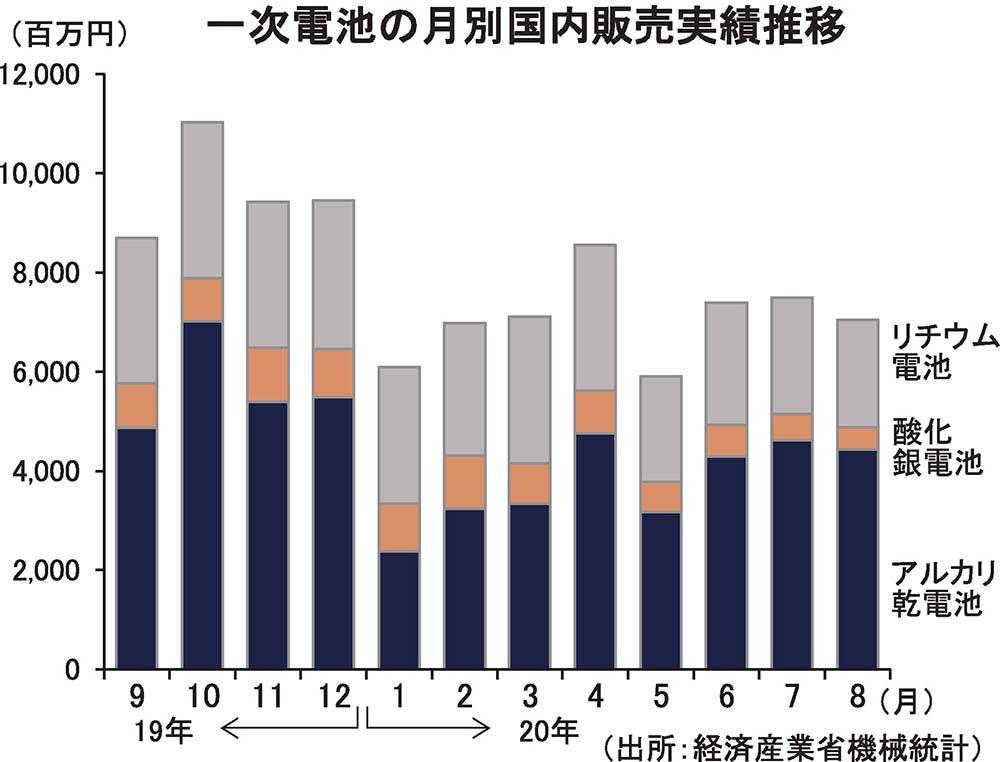November 11th is "Battery Day" Use correct batteries that do not leak
Batteries are easily available at any electronics store. I would like to revisit how to use

Batteries are a commodity (everyday) product that we use as a matter of course in our lives, and aren't we using dry batteries without thinking deeply about them? Although it has been realized, if used incorrectly, it will cause liquid leakage, which can lead to equipment failure and accidents. Today, November 11th is "Battery Day". I would like to take another look at how to properly use batteries that do not leak. "First of all, how many people know that today is Battery Day?" In fact, many anniversaries are set on November 11th because of the numbers. Among them, "Battery Day" was established in 1987 by the Battery Association of Japan. If you write "11" in kanji, it becomes "+ (plus) - (minus)", and it is said that it was decided after representing the positive electrode and negative electrode of the battery. By the way, December 12th is designated as "Battery Day" because the pitcher and catcher position numbers are 1 and 2 in baseball, and from November 11th to December 12th is battery month We carry out enlightenment activity about right how to use. "Now then, what is the correct way to use batteries?" Many people think that it is just a matter of inserting the positive and negative directions in the same way. Some people may feel that recent electronic devices such as smartphones and digital cameras often use dedicated lithium-ion batteries, and there are few cases where dry batteries are used. However, I noticed that there are many products that unexpectedly use dry batteries. In addition to remote controls for home appliances, dry batteries are also used in wireless mice, wall clocks, and table clocks. Portable electric toothbrushes, portable shavers, and electric blood pressure monitors all use dry batteries. Many toys are also battery-powered, and it is essential to stockpile batteries in households with children. For business use, electronic dictionaries and IC recorders are often battery-powered. From the viewpoint of disaster prevention, there are also flashlights and portable radios. Many people will use stoves in the coming winter, but the ignition will be batteries. Recent domestic manufacturers' alkaline dry batteries are not only high-power and long-lasting, but also have enhanced safety such as long-term storage and leak prevention. Therefore, there is no doubt that equipment failures and accidents are less likely to occur. On the other hand, "No matter how much safety is improved, if the battery is used incorrectly, liquid leakage will occur," said an official from a battery manufacturer. Here, I would like to take a look at the liquid leakage that is most likely to occur in batteries. "Most of the leaks are due to over-discharge of the battery." A weak electric current flows through the circuit of an electronic device just by inserting a battery. Therefore, if the battery is left in the electronic device, even if the battery capacity runs out, the electronic device will still need electricity, and will end up in an over-discharged state as it tries to absorb more current. When the battery is over-discharged, gas is generated inside the battery, and if left as it is, the gas will accumulate inside the battery, causing the cylinder to expand and eventually burst. In order to prevent this rupture, the liquid is leaking. In other words, it would be correct to say that the liquid is leaking to prevent an explosion accident. Even so, if the liquid leaks, the equipment will be damaged, so the key point is how to prevent the liquid from leaking. "There are probably many people who have had the experience of leaking batteries from flashlights etc. This is an example of leakage if the battery is left in for a long time even if it is used correctly. It is better to get into the habit of removing the batteries when not using for a long period of time. In addition, there are cases of liquid leakage from remote controls and mice. Even though the battery of the remote control is dead, pressing the button repeatedly and trying to turn on the power will put a load on the battery and cause it to over-discharge. In some cases, you can operate it by pressing the button several times, but it is better not to think that it is a waste because it works. Battery manufacturers recommend that you replace the battery with a new one if the reaction becomes dull even a little. "With a little care, you can prevent the liquid from leaking." From now until the end of the year, there will be more opportunities to replace batteries while cleaning the house. Why don't you take another look at how to use dry batteries?
Dempa Newspaper Press Department, Media Business Headquarters
Last update: Dempa Shimbun Digital